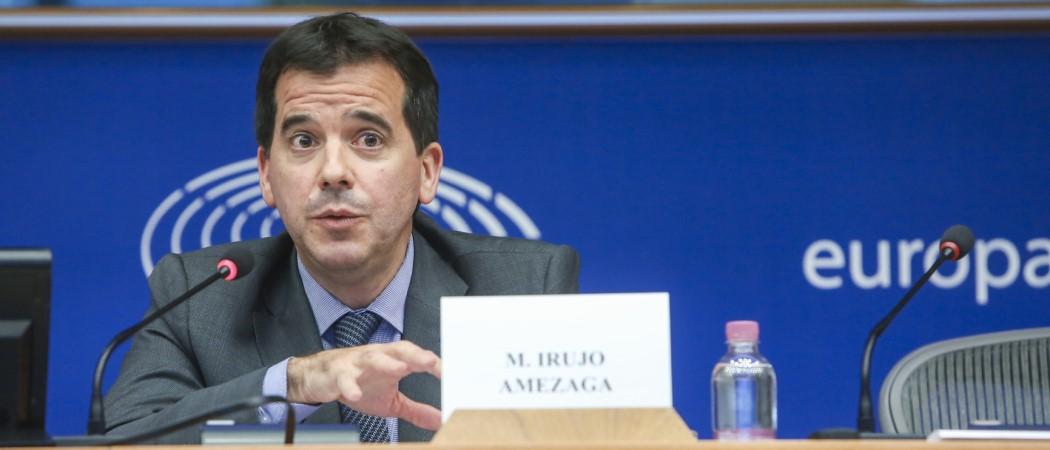Regional innovation rankings would be a better reflection of what is happening on the ground if local data was used instead of extrapolating from national figures

Mikel Irujo, director general for foreign action at the government of the Navarra region in Spain
EU regions want their statistical agencies to be more involved in compiling the regional innovation scoreboard and are calling on the European Commission to include policy recommendations in the biennial report, to help regional governments improve their R&D strategies.
The Committee of the Regions (CoR), says the Regional Innovation Scoreboard should be a tool to inform EU regions in developing innovation ecosystems and implementing the EU's political agenda, including the Green Deal.
Mikel Irujo, director general for foreign action at the government of the Navarra region in Spain, says regional statistical services should be more involved in the data collection and reporting.
In a report drafted by Irujo and debated in the Cor plenary on Monday, EU regions say the commission should include policy recommendations. “[The scoreboard] should not be seen as a regional beauty contest,” Irujo told Science|Business. “It needs to be an instrument to support regional integration throughout Europe.”
The commission publishes the Regional Innovation Scoreboard, reflecting in-country variation and allowing regions to compare themselves with counterparts in other member states, every two years, as an extension of the annual innovation scoreboard, which measures R&D performance of EU member states as a whole.
The CoR report says the commission should be more transparent and publish raw data along with the scoreboard. “This lack of transparency should be eliminated,” Irujo said.
The report was put together with the help of policy experts from the University of Navarra, who looked at the methodology used to compile the scoreboard. “[The scoreboard] is the best tool to have today to compare and to see the [regional] development,” said Irujo. “But we also mention some aspects that perhaps should be checked.”
The scoreboard can be inaccurate because scant regional data means the commission will often extrapolate from national figures. While many regions in Europe do not have their own statistical offices, the commission could make more use of data coming directly from the regions. “In some cases that lack of data is too high,” Irujo said. “In those countries with regional statistical services, we believe that data should be used.”
To further increase its utility, the scoreboard should be better linked to other monitoring tools, to align its performance indicators with the new political priorities of the EU, of transforming the economy through digitalisation and green technologies.
In 2019 the Regional Innovation Scoreboard placed Helsinki-Uusimaa first, followed by other Scandinavian capital regions. Many regions in southern and eastern Europe, including in Spain, achieved below average results.
Regions suggest carrying out a thorough analysis to assess whether the current indicators are suitable for measuring innovation, if new indicators are needed and if other indicators should be dropped or given less weight.
EU instruments work in silos
In addition, the scoreboard needs to do a better job of explaining how different EU innovation policy initiatives are to be meshed together to help regions boost R&D performance.
A number of EU initiatives to promote regional development are not coordinated: the Innovation Radar, the Research and Innovation Observatory, the Policy Support Facility, Smart Specialisation, and others. “In many cases they are made up in a silo,” said Irujo. “When a region has limited capacity, it drives you crazy.”
The “smart specialisation” strategy, a plan by the EU to help regions identify and develop their own competitive advantages in innovation, has been heavily advertised by the commission, but the latest scoreboard does not mention it.
According to Irujo, some of these initiatives are in taken into account by the scoreboard indicators but the commission does not give clues as to how the regions could make use of them to boost performance.
Regions have limited capacity to learn how EU funding and support schemes work. “It is really challenging,” said Irujo. “It’s absolutely impossible to follow all the strategies, initiatives, networks.”
The regions want the commission to expand the use of its policy support facility to regional governments. “Perhaps because the commission is very fragmented in different [directorates-general], coordination is not always as good as it should be,” said Irujo.





 A unique international forum for public research organisations and companies to connect their external engagement with strategic interests around their R&D system.
A unique international forum for public research organisations and companies to connect their external engagement with strategic interests around their R&D system.